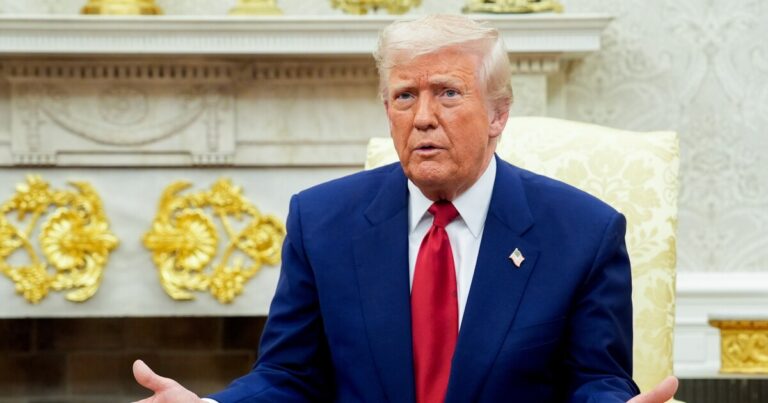Companies are praising President Donald Trump’s new tax law as a boost to spending power.
The One Big Beautiful Bill Act — also known as OBBB — will help free up cash due to provisions that allow companies ranging from health-care giant Johnson & Johnson to technology consultant Booz Allen Hamilton Holding Corp. to immediately expense domestic capital costs.
“It gives a definite advantage to domestic R&D,” American Institute of CPAs Vice Chair Jan Lewis said in an interview, “whereas if those R&D expenses are incurred outside the U.S., they still have to be capitalized and amortized.”
While many companies have not stated what they might do, last month’s tax legislation is helping ease some concerns while they grapple with tariff uncertainty. Of the Russell 3000 companies that have reported earnings so far this quarter, 19% mentioned the new law on their conference calls.
Companies can now fully expense research and development, new equipment and property in the U.S., instead of spreading deductions over several years, freeing up cash and encouraging companies to move forward with equipment purchases and facility upgrades sooner.
“If you are now able to deduct a hundred percent of millions and millions of dollars of equipment for tax purposes, that lowers your taxable income, that lowers your tax burden, ends up helping you out financial-statement wise,” Lewis said.
Johnson & Johnson touted the tax bill as a plus for its previously announced $55 billion investment in the US, adding certainty amid tariffs.
“It’s hard to know what is going to happen ultimately with tariffs, but what we do know for sure is that the tax policies that just passed are already creating American jobs and driving innovation,” Chief Executive Officer Joaquin Duato said.
AT&T Inc. sees as much as $8 billion in cash tax savings from 2025 through 2027 and plans to use about $3.5 billion of it to expand its fiber network, Chief Financial Officer Pascal Desroches said on a conference call. Truckmaker Paccar Inc. and aerospace and defense manufacturer General Dynamics Corp. have been getting more business inquiries now that cash is freed up, executives said on their respective earnings calls.
“Their ability to deploy that cash or capital asset purchases like trucks is starting to be part of the conversation and as part of our optimism for the latter part of the year,” Paccar CEO Preston Feight said. The company has guided for parts sales growth of 4% to 6% this quarter, which would be more than the past three quarters.
General Dynamics’ healthy book-to-bill ratio was helped “quite a bit” by the bonus depreciation, CEO Phebe Novakovic said.
Both Booz Allen and United Rentals Inc. raised their free cash flow outlook by $200 million and $400 million, respectively, citing the tax benefit. Northrop Grumman Corp. said it will see a cash tax benefit of $200 million to $250 million for the year, while Roper Technologies Inc. said it would pay about $150 million less in taxes this year, and expects a benefit of $120 million next year.
Some companies such as Ford Motor Co. and Sherwin-Williams Co. are still assessing the financial impact. Others including Boeing Co. don’t see a material impact this year.
The bill might incentivize companies to increase operations in the U.S., though doing so could also boost costs.
“You have the tariff conversation that complicates that even further,” American Institute of CPAs CEO Mark Koziel said in an interview. “You can’t look at this in just a silo and say these businesses are all going to have all these amounts of cash that they’re going to be spending everywhere and making tons of money compared to prior years.”


